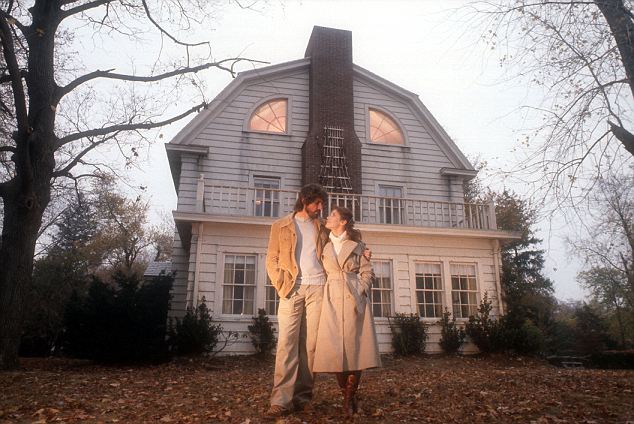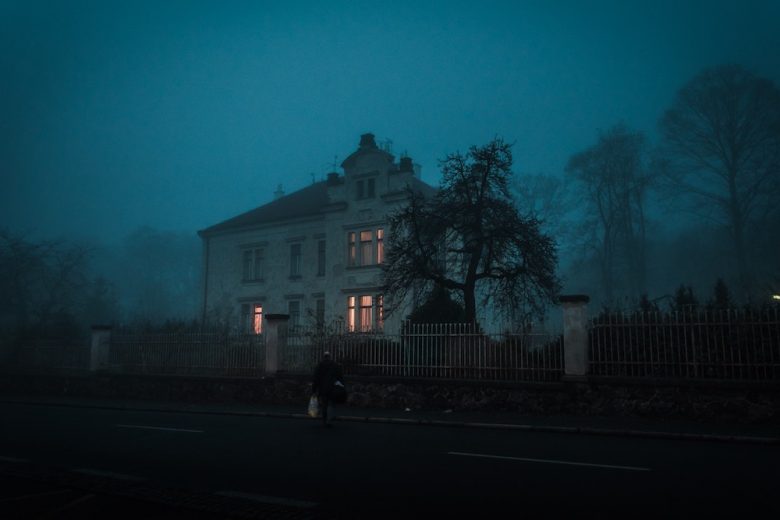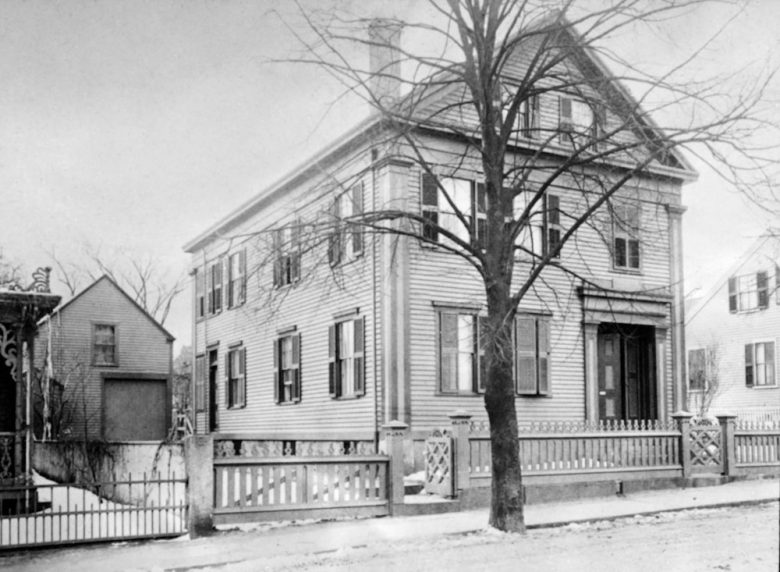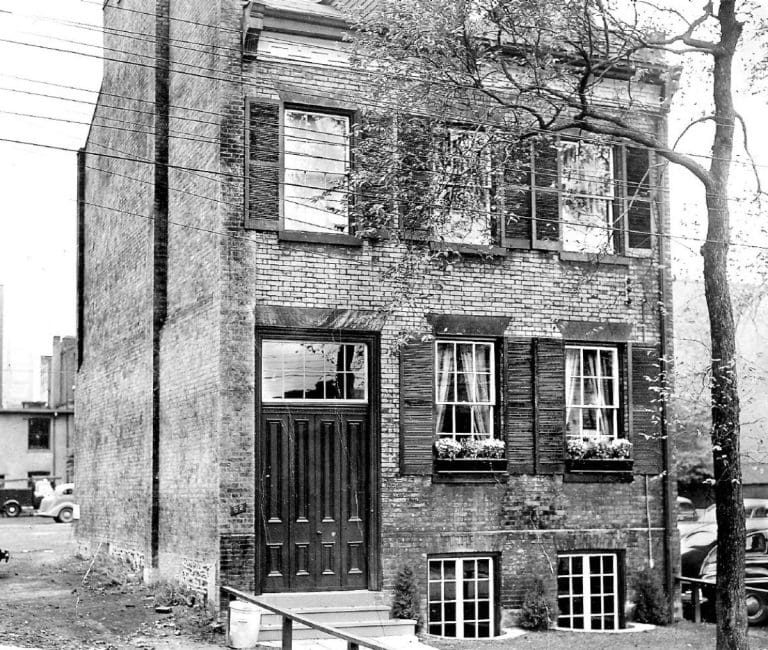"So, it has 2 floors, 5 bedrooms, 2 bathrooms, a big garden… and, oh! It's a little bit haunted." This probably isn't a description you would like to hear from your realtor when being introduced to your potential home. Nevertheless, there are certain houses with a history that makes them special. The history of these so-called "stigmatized" properties can be colourful — ranging from indebted former owners who ran away from executors to scenes of terrifying, horrendous crimes. So what types of stigma are usually recognized by the public? What is the legal status of such properties, and are there any known stigmatized houses in Toronto?
Defining stigmatized properties
A stigmatized property is a property that buyers or tenants avoid for reasons unrelated to its physical condition or features. These usually include a murder or a suicide that took place on the property, often accompanied by a belief that the house may be haunted — which is, of course, a very controversial concept.

Still from The Amityville Horror movie
Most people believe that the seller has a duty to disclose any such history of the property; however, the law is a little bit unclear on this matter.Some of these homes, which were also used in television or film, can also be stigmatized by an increased number of fans wanting to visit the house. The house at 112 Ocean Avenue in Amityville, New York is one of the most famous examples, as it was used in The Amityville Horror. In November 1975, Robert DeFeo Jr. shot and killed six members of his family there. The next homeowners, George and Kathy Lutz, moved in with Kathy's three children 13 months after the killings, only to leave the house 28 days later, claiming to have been terrorized by paranormal phenomena while living there. After the film was released, the house had been renovated and the address changed in order to prevent sightseers from disturbing the neighbourhood.
If you want to read our real estate take on this movie check out the Real Estate Lessons in Movies here!
What types of stigmatized properties exist?
Several kinds of stigmatized properties are recognized by various jurisdictions that have passed resolutions or statutes to deal with them. They are usually separated by disclosure — the amount of information required to be disclosed by the seller depends both on the local law and the type of stigma.
The most common types are:
1. Public stigma
- known to a wide range of the population
- must always be disclosed in almost all jurisdictions
- Examples: Amityville Horror house, home of the Menendez brothers
- Biggest turn-offs: unwanted attention, bad reputations, psychological effects
2. Criminal stigma:
- ongoing commission of a crime that took place within the property
- full disclosure required by most jurisdictions
- Examples: a chop shop, drug den, or brothel
- Biggest turn-offs: bad reputation, unexpected visits – for example, uninformed drug addicts may come to your house expecting to purchase illegal drugs
3. Murder/suicide stigma
- murder/suicide took place inside the property
- realtors required to disclose the information by most jurisdictions
- Biggest turn-offs: psychological effects, fear of possible paranormal phenomena
4. Debt stigma:
- applies if former homeowners were indebted
- particularly pronounced if the collection agency uses aggressive tactics
- Biggest turn-offs: danger of being harassed by debt collectors, who are not aware that a debtor has moved out already
5. Phenomena stigma:
- the house is renowned for hauntings, ghost sightings, etc.
- very controversial type of stigma
- disclosure required by many, but not all jurisdictions
- Biggest turn-offs: somehow, people don't feel good about the presence of a ghost in their house
6. Minimal stigma
- known to, or taken seriously by only a small group
- unlikely to affect the ability to sell the property
- realtors usually decide to disclose this information on a case-by-case basis
Laws are unclear in Ontario
Let's say you are planning to buy a house in Toronto and you want to learn as much as you can about the property. Unfortunately, Ontario has no laws that require disclosure if a house is stigmatized. A seller is not obliged to disclose any information about murders, suicides, or anything else untoward that might have happened in the home. Realtors, on the other hand, should disclose any factor that may have an impact on property value, including psychological factors. Nevertheless, they still have to be careful to avoid error, misrepresentation, and concealment of these facts.
There have already been many calls for clearer legislation in this matter, but this area of the housing market remains tricky. Drawing a clear line between important and unimportant information can be difficult. A house has been the scene of a crime is a fact, but can the presence of an apparition be a fact? If the neighbourhood believes that the property is a former drug den, though it has never been proven, does it make the house stigmatized?
There has been an obvious tendency in the Canadian real estate industry recently to embrace full disclosure of all the information. It is probably based on the assumption that the more that is told, the lower the probability of being sued for having concealed some fact. In any case, if you're a buyer, the best idea would be to simply ask for as much information as you can. You have the right to know everything you need to make a choice.
Is stigma always a bad thing?
Though the label "stigmatized" carries negative connotations, there have been cases when a stigmatized property was sold more easily than usual. Some realtors even reported buyers actually "battling" for an allegedly haunted house. There are houses that even benefit from the notoriety. For instance, the Lizzie Borden residence in Fall River, Massachusetts is now a successful Bed & Breakfast that allows guests to sleep in the rooms where the infamous axe murders took place. There is a gift shop in the house as well.

The Borden house in the late 1800s
Stigma often affects the price of a property in a negative way. On the other hand, research shows that time will usually soften most stigmas. Although they have the ability to discourage buyers and therefore decrease the value of the property, it is typically much easier to sell the house again for a much better price after some time has passed.
Stigmatized properties in Toronto
Though the Toronto police maintain a list of marijuana grow operations, there's no publicly available list of the local homes that have been the sites of suicides, murders, or other crimes. However, you can still keep an eye out for any "haunted" properties in Ontario by simply visiting website Toronto Ghosts.
The website claims to be "Canada's oldest established website & group devoted to ghosts and hauntings" and it is run by the Toronto and Ontario Ghosts and Hauntings Research Societies. It is a non-for-profit group dedicated to the study of paranormal events involving ghosts or hauntings, which is trying to approach the problem from the scientific point of view, claiming to work from an agnostic standpoint. The website provides many reports of ghost sightings in the City of Toronto and the whole Province of Ontario.
After all, haunted houses are the most curious type of stigmatized properties. Probably the most known haunted house in Toronto (maybe even the most famous haunted house in Canada) is the former home of William Lyon Mackenzie, the leader of the Upper Canada Rebellion, a newspaper editor and Toronto's first mayor. Mackenzie's ghost is reputed to haunt the house, which now serves as a museum. The stories of ghostly activities were first reported in Toronto's newspapers in the 1960s. Although sceptics argued that it was just a gimmick to improve attendance numbers because the museum wasn't doing very well at the time, paranormal activities have been reported continuously since then and even today, many visitors come to Mackenzie house hoping to see apparitions.





